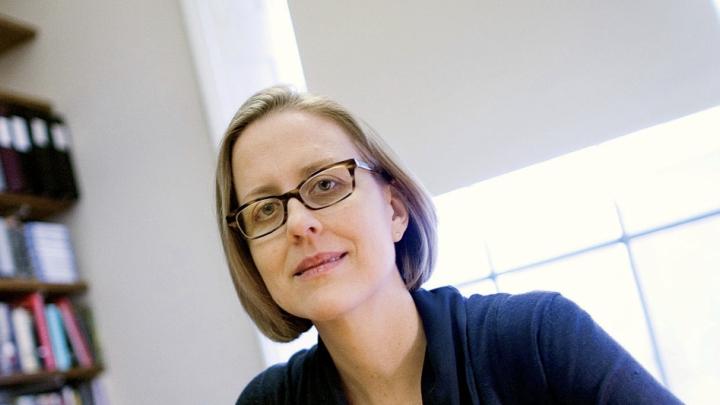Academics sometimes say you can see the seeds of an entire career in a scholar’s first book. “I’ve always felt that’s not true about my book,” says professor of English Amanda Claybaugh about The Novel of Purpose: Literature and Social Reform in the Anglo-American World, “but that is a question for me: What is the purpose behind literature? Is it enough to be good and meaningful? Should there also be some kind of social good?” After receiving her Ph.D. from Harvard in 2001, Claybaugh moved to Columbia, offering courses in English and comparative literature and earning praise for her teaching, as she had in Cambridge. (Having won two Bok Awards in graduate school, she became the first junior faculty member to win Columbia’s Presidential Teaching Prize.) She returned to Harvard in 2010. She’s currently at work on two books. One is a study of representations of the expanding federal government in post-Civil War literature: “Our political environment today is troubled by our inability to understand what the federal government does for people,” Claybaugh observes, “and if I can get back to the origins of how people thought about it, I hope I can understand our contemporary moment better.” The second is a history of a postbellum emancipated slave community on South Carolina’s Sea Islands. Her interest springs from wondering, “What is it like to be a slave, and then be free, and then basically be a slave again when Reconstruction’s over?” By making use of evidence found in diaries and letters, “I’m telling the story of how these people tried to create a post-Emancipation society.” Claybaugh also works extensively with contemporary literature. She’s reviewed books for n+1 and the London Review of Books, and teaches a class on the contemporary novel: “I find it really exciting,” she says, “to be one of the first people to talk about something.”
Harvard Portrait: Amanda Claybaugh

You might also like
Breaking Bread
Alexander Heffner ’12 plumbs the state of democracy.
Reading the Winds
Thai sailor Sophia Montgomery competes in the Olympics.
Chinese Trade Dragons
How Will China’s Rapid Growth in the Clean Technology Industry Reshape U.S.-China Policy?
Most popular
More to explore
Harvard Philosophy Professor Alison Simmons on "Being a Minded Thing"
A philosopher on perception, the canon, and being “a minded thing”







